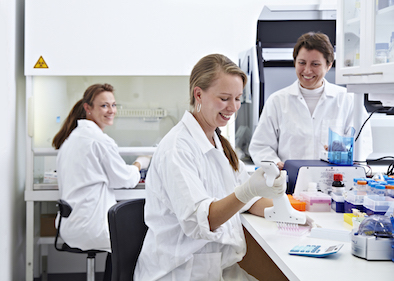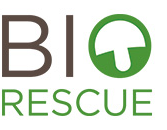Tailor-made enzymatic solutions reduce time and cost of biorefinery processes
 Non-food, woody materials (namely lignocellulosic biomass) is the largest renewable reservoir of fermentable starches to substitute fossil fuels. It can be used to produce bio-based polymers and materials for any kind of product – from yoga mats to loud speakers – as well as for paints, biochemicals, cosmetics, bioplastics and biofuels.
Non-food, woody materials (namely lignocellulosic biomass) is the largest renewable reservoir of fermentable starches to substitute fossil fuels. It can be used to produce bio-based polymers and materials for any kind of product – from yoga mats to loud speakers – as well as for paints, biochemicals, cosmetics, bioplastics and biofuels.
Among the different technologies available to transform lignocellulosic biomass, biochemical conversion is particularly interesting from an environmental point of view because it requires milder conditions (lower temperature and pressure, and less acidic or alkaline environment) than other conversion processes.
Key components in a biorefinery conversion are enzymes, which are used to break down the long-chains of sugar and lignin polymers present in the biomass into smaller pieces. Enzymes are necessary in all the steps of this process and for any kind of feedstock. Therefore, their performance has a great impact on the overall time and cost of the biomass conversion. It has been calculated that biomass pretreatment and enzymatic hydrolysis alone account for around 70% of the total biorefinery processing costs.
Extracting sugars and lignin in a more efficient way
Thanks to the European research funds of the BIOrescue project, Finnish company MetGen developed more efficient enzymes to accelerate chemical reactions and reduce the cost of bioconversion.
In BIOrescue MetGen is focusing on enzymes that help extract valuable components from used mushroom compost that would otherwise be thrown away at a cost for farmers.
Typically the market offers only a general combination of enzymes for any kind of feedstock, without considering the specific characteristics of different biomass. This makes the enzymatic hydrolysis process quite slow and costly.
MetGen has created proprietary enzymatic solutions (MetZyme® SUNO™) tailored to extract the sugars from the mushroom compost in an optimal way. With an optimised SUNO™ solution, they found out the best conditions to break down the molecules obtained from pre-treated mushroom compost into monosugars with a maximal conversion yield (>95%).
In addition, MetGen utilised its innovative enzymatic lignin fractionation technology (employing MetZyme® PURECO™ together with membrane operations) to produce highly reactive depolymerised lignin in a very sustainable and efficient manner. This technology has the benefits of avoiding the use of heavy metals or toxic solvents, and operating in mild process conditions(temperature below 60°C) to effectively break down and at the same time preserve the desirable properties of lignin.
Improved competitiveness of bioconversion processes
This enzyme cocktail has already reduced the time and quantity of enzymes needed for the hydrolysis sugars by at least 20%. Besides, these enzymes can survive in harsh industrial environments which opens the door for novel applications and combination with other enzymes.
The novel enzyme cocktail has therefore improved the overall competitiveness of mushroom compost conversion, thanks to:
– Improved efficiency and less time through better process conditions;
– Reduced cost through cuts in enzyme dosage;
– Increased sugar yields through biomass specificity.
The potential of this research goes far beyond mushroom compost. The biorefinery system developed in BIOrescue is very flexible and can be replicated not only in other mushroom farms but also with other agricultural by-products. Improving enzymes in this process therefore means multiplying the opportunities for a carbon-neutral bio-based industry.
For more information, you can visit the BIOrescue website at www.biorescue.eu, watch our project video, and access further project communication material in our Media Kit.
Press and media enquiries can be directed to Valeria Mazzagatti, v.mazzagatti@greenovate-europe.eu or Bénédicte Julliard, b.julliard@greenovate-europe.eu, Tel. +32 (0)2 00 10 07.
Picture credits: MetGen

Recent Comments